
Qualify for a no income home loan without using your personal income documents or tax returns with a DSCR Loan. As a real estate investor, this loan program allows you to avoid the high rates and points commonly associated with private loans or commercial financing.
Additionally, you can bypass the lengthy approval processes and strict lending criteria typically found with traditional loans. The DSCR loan, also known as a debt service coverage ratio loan, is a type of no-income loan that allows you to qualify based on your property’s cash flow instead of your income.
What is a Debt Service Coverage Ratio Loan (DSCR)
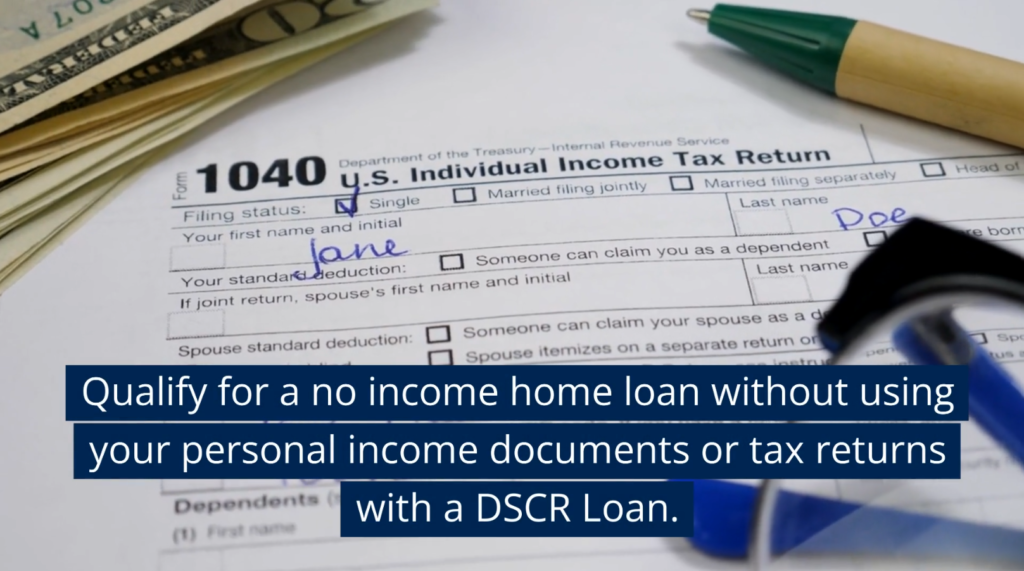
When it comes to obtaining a loan for an investment property, understanding the concept of Debt Service Coverage Ratio Loan (DSCR) can be a great option. A DSCR Loan is a Non-QM portfolio loan that uses a ratio that compares a property’s annual gross rental income to its annual mortgage debt. This includes principal, interest, taxes, insurance, and HOA fees if applicable.
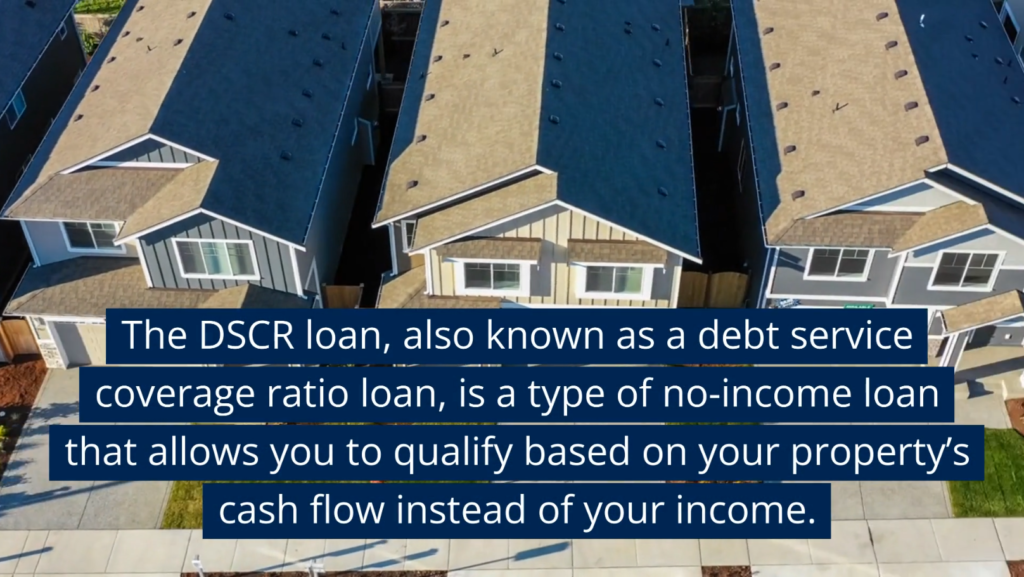
Lenders rely on DSCR to assess the viability of a loan by evaluating how much income generated by the property can support the loan amount. Lenders do not consider certain expenses such as management fees, maintenance costs, utilities, vacancy rates, or repairs when calculating the debt service coverage ratio. However, these expenses should still be taken into account when considering the overall financial implications of the loan.
How does a DSCR Loan Work?
If you’re a real estate investor and are looking for ways to qualify for a loan, you may want to consider a debt service coverage ratio (DSCR) loan. Unlike conventional loans, DSCR loans don’t require proof of income through tax returns or pay stubs. This is beneficial for investors who may have write-offs and business deductions that affect their reported income.
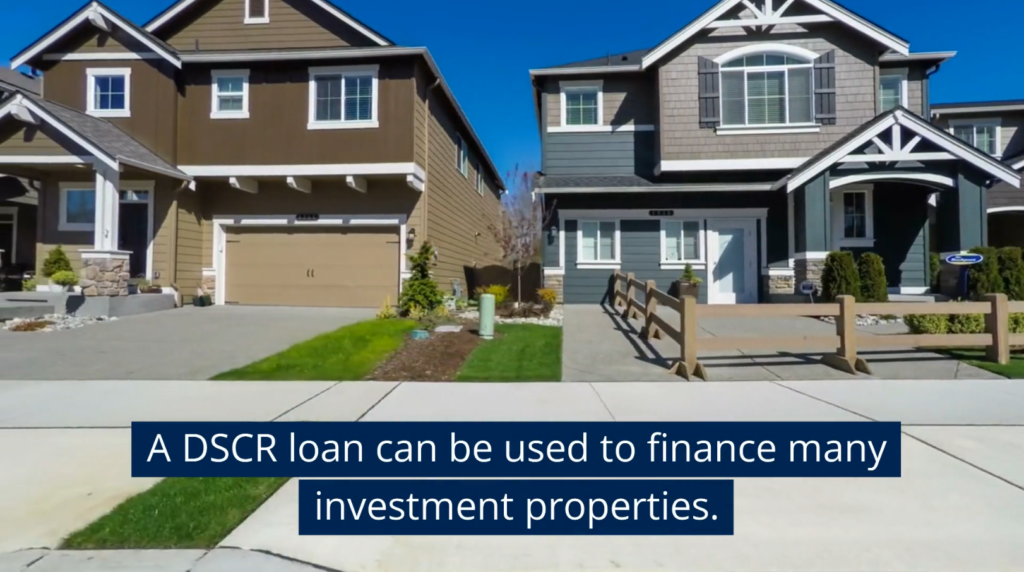
A DSCR loan is no income mortgage loan particularly useful for properties that you plan to rent out or use for generating income. Whether you’re renting to a long-term tenant or running a short-term rental business on platforms like Airbnb, a DSCR loan can be a great option, especially if you don’t have W-2 income.
Property Types eligible for a DSCR loan:
A DSCR can be used to finance many investment properties. We work with several investors that may allow financing on the following property types:
- Single Family Residences (SFR),
- Single family homes
- Condos
- Non Warrantable Condos
- Townhomes
- Multifamily properties (1-4 Units)
Why choose a DSCR Loan for your investment property
Many real estate investors choose DSCR loans for income-generating properties, as they provide opportunities to create additional streams of revenue. If you’re interested in purchasing or refinancing a property and are unsure whether a DSCR loan is suitable for your needs.
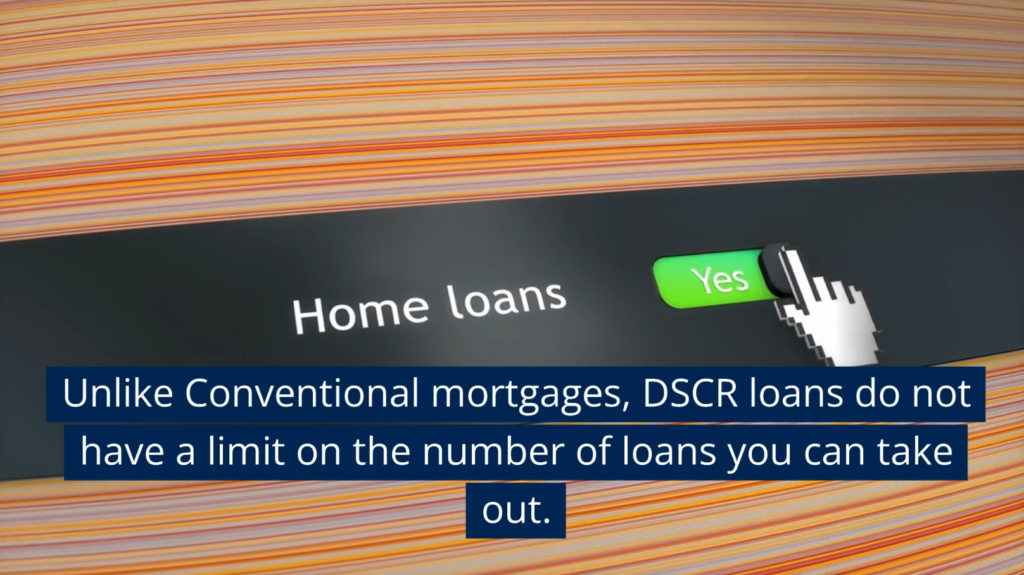
Reasons to choose a DSCR Loan include:
- You have complex tax returns
- You are newly self employed or have less than 2 years of self employment
- Your tax returns show a loss
- You own several properties
- You cannot source and document your down payment funds
- You are buying the home in an LLC or want to close in a business name
What are the advantages of DSCR Loans
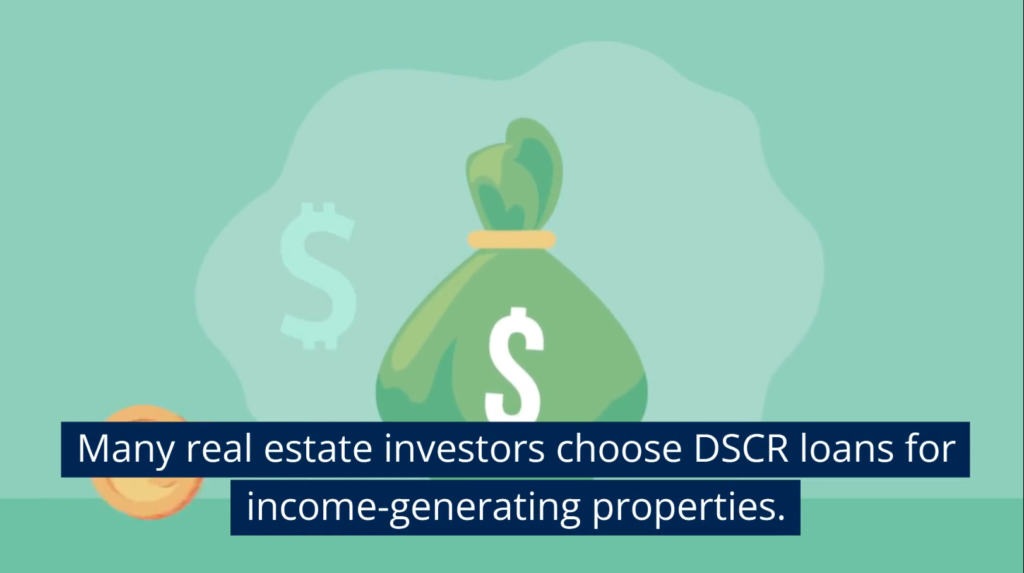
DSCR loans offer several advantages, including:
- No Personal Income Required: Unlike other loans, DSCR loans evaluate the rental income generated by a property rather than the borrower’s income to determine eligibility. This means that even if the borrower’s income is insufficient, they can still purchase an investment property.
- No limit on the number of loans: While traditional mortgages impose limits on the number of rental properties a borrower can buy, DSCR loans generally allow borrowers to take out as many loans as they need.
- Faster closing process: DSCR loans typically have shorter closing times compared to conventional mortgages due to simplified documentation requirements. This can expedite the loan approval and property acquisition process.
- No employment verification: Since DSCR loans rely on rental income and not the borrower’s personal income, there is no need for employment verification. This makes the loan application process quicker and less burdensome.
- Commit to buy several properties at once: Since your personal debt to income ratio is not part of the underwriting process, you can buy many investment properties at once.
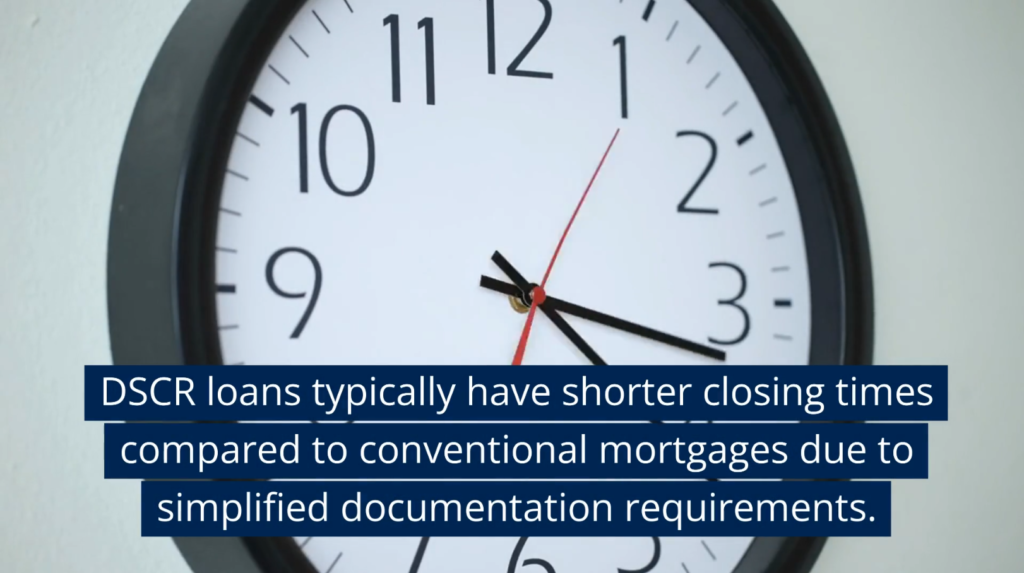
Who should consider DSCR Loans?
DSCR Loans are a potential solution investors in residential real estate rentals, making them perfect for a wide range of situations. Whether you’re a first-time investor or an experienced pro looking to expand your portfolio, DSCR Loans may be a good solution for your purchase or refinance.
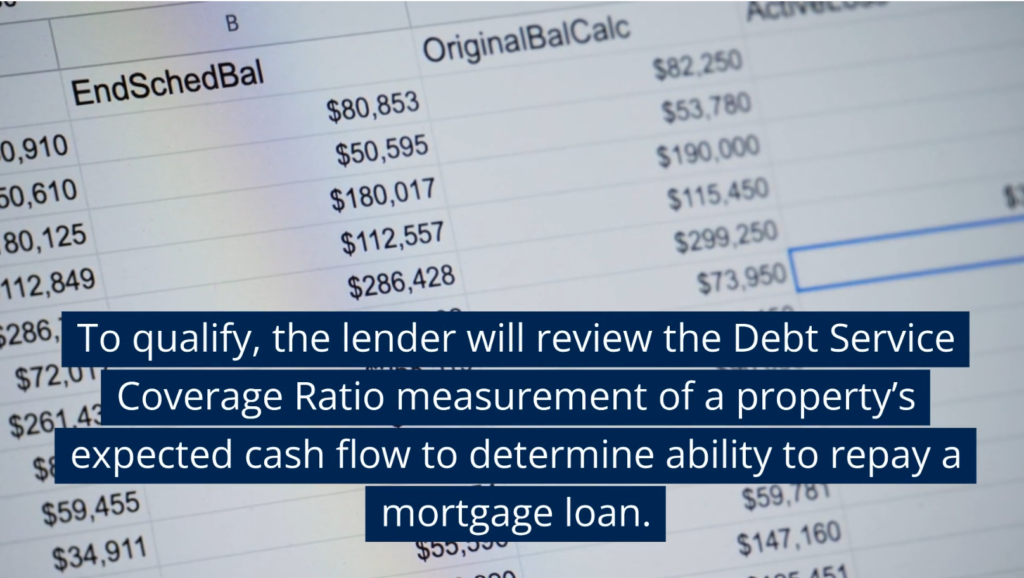
DSCR Loans are particularly beneficial for:
- Self-employed or freelance individuals who want to invest in real estate. Obtaining conventional financing for investment properties can be extremely difficult when you don’t have a W2 form. Traditional lenders require two years of stable employment and income for investors. Additionally, they assess the borrower’s “DTI” (debt-to-income) ratio. This adds an extra hurdle, which DSCR Loans bypass by focusing on the income potential of the property rather than the borrower’s personal income.
- Investors who work with partners or teams. Collaborating with other investors can be a smart move when investing in real estate. People have found success by partnering with individuals who possess complementary skills. For instance, one investor may have capital for down payments but lacks the time to find deals and manage properties. They can team up with someone willing to put in the work. Additionally, DSCR Loans allow borrowers to borrow in a partnership or limited liability company (LLC) and share ownership. This advantage is not available with conventional financing.
- Investors pursuing niche strategies like Short Term Rentals or the “BRRRR Method.” While DSCR Loans are commonly used for traditional rental properties like single-family rentals with long-term leases, they are also suitable for investors exploring more innovative strategies. Conventional lenders, like banks, are slow to adapt to these changes and tend to be reluctant to support newer strategies. However, DSCR Lenders are flexible and supportive of investors specializing in these niches. For investors focused on optimizing cash flow and qualifying creatively, DSCR Loans are the ideal solution.
How do you Qualify for a DSCR Loan?
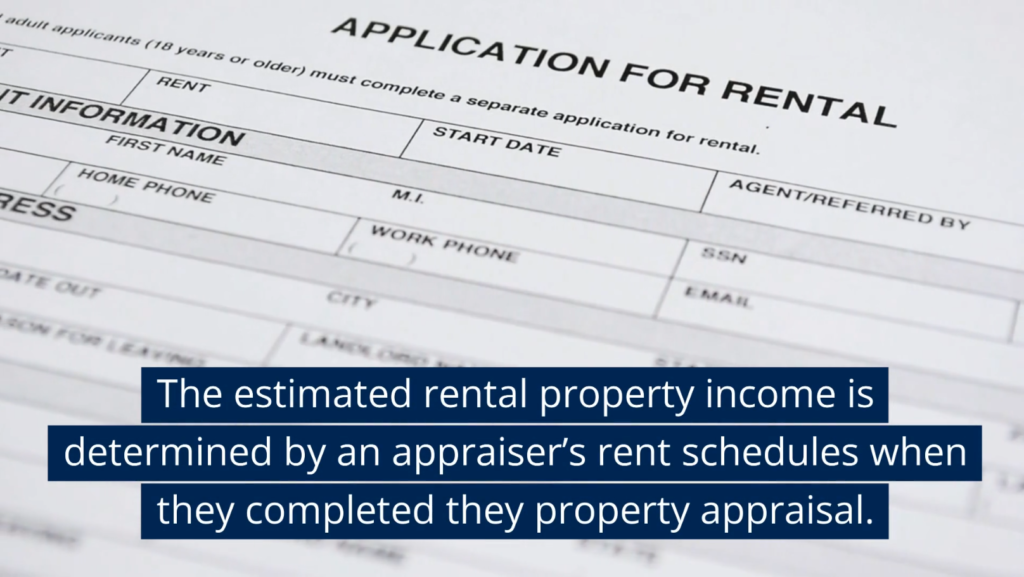
One of the greatest advantages of DSCR Loans is their flexibility and easy qualification process. This sets them apart from conventional financing options, which are bound by rigid rules imposed by agencies like Fannie Mae and Freddie Mac.
To qualify for a DSCR Loan, the lender will review the Debt Service Coverage Ratio (DSCR) measurement of a property’s expected cash flow to determine ability to repay a mortgage loan.
(Principal + Interest + Taxes + Insurance + HOA) / Rental Property Income = DSCR Ratio Calculation
A real estate investor might be interested in a property that generates $50,000 in rental income each year and has annual debt expenses of $40,000. By dividing the rental income by the debt expenses, we can calculate the debt service coverage ratio (DSCR), which in this case is 1.25. This means that the property generates 25% more income than what is needed to repay the loan. This positive cash flow is seen favorably by lenders.
The estimated rental property income is determined by an appraiser’s rent schedules (1007) when they completed they property appraisal. The appraiser will document rental rates in the area for similar properties and determine the estimated rental income for the subject property.
What Documentation is Required for a DSCR Loan
Documents required for a DSCR Loan are diffferent than what is required for a conventional mortgage. There are no income documents such as paystubs, w2 statements or tax returns however there are other items that you will need to provide.
- Here is a short list of required items for a DSCR Loan:
- Loan Application
- Credit Report
- Bank Statements – 2 months of bank statements to show a minimum of 3-12 months reservse (depending on lender)
- Home Owners Insurance – Annual insurance policy
- Entity Documentation – Not required if you are buying as an individual but many investors buy under an LLC for liability protection. Articles of Organization and Operating Agreement
- Appraisal Report – Ordered by the lender during the underwriting process. Appraisal will require a 1007 Rent Schedule to determine property cash flow
- Title Work – Title insurance and a deed search will be required
How do I get Pre-Approved for a DSCR Loan?

Since DSCR loans do not required income documentation, pre-approvals generally only review credit and asset documentation. You must show that you meet the minimum credit requirements and have a minimum of 3 months of cash in reserves to qualify for most DSCR loans.
The DSCR Ratio cannot be completed until a property is appraised to determine the rental property income.

To get pre-approved for a DSCR Loan to buy a home or refinance an investment property complete the request below or call a mortgage broker at 800-555-2098
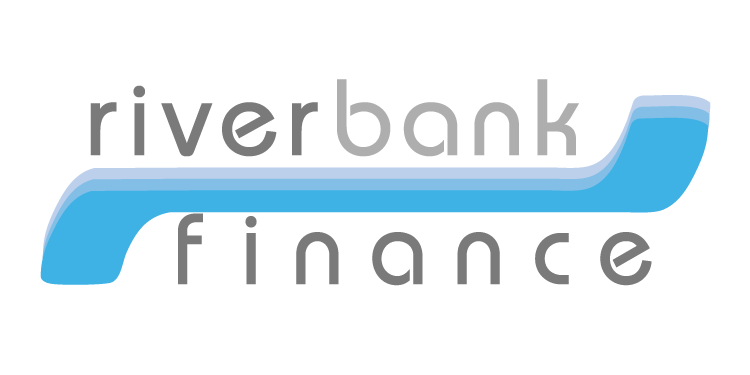
 800-555-2098
800-555-2098

